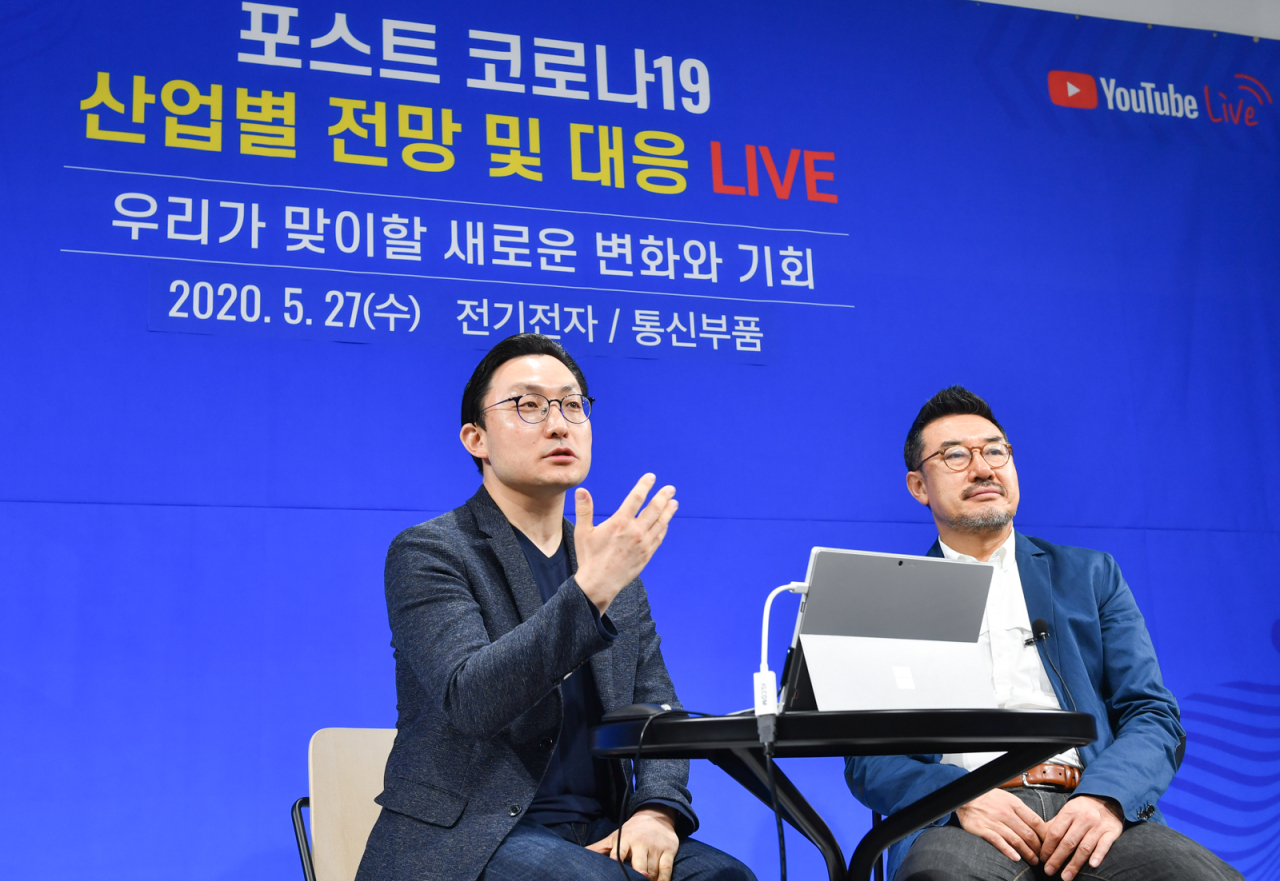Pandemic to bring big change in electronics, mobility: KITA
By Shin Ji-hyePublished : May 28, 2020 - 16:22

Companies should grab opportunities in electronics and mobility industries in the post-pandemic era as they will undergo vast changes, experts said during a two-day on-line seminar hosted by the Korea International Trade Association from Wednesday to Thursday.
Among those attending the seminar broadcast live on YouTube were Hi Investment & Securities head of the center Ko Tae-bong, Kookmin University professor Jeong Gu-min and Future Designers CEO Choi Hyung-wook. They spoke on prospects and opportunities for the electronics and mobility industries in the post-pandemic era and the changes in the global value chain of trade.
Regarding the outlook for the mobility industry, Ko said the technological legacy of the 100-year-old global automotive industry is no longer an entry barrier for new companies that have emerged with disruptive innovations.
“If the parts industry, which has a less clear future than the finished car industry, neglects to respond to the future, such as smart cities, it will face difficulties.”
Professor Jung said COVID-19 has made a big change in mobility, with human movement decreasing and online shopping rising.
“After the pandemic, the spread of smart factories will expand the unmanned use of mobility in manufacturing processes and increase demand for delivery efficiency, self-driving and vehicle management services.”
Regarding electronics, telecommunications and parts industries, CEO Choi said, “As the importance of high-tech is combined with protectionism, technology is becoming weaponized.”
“Global companies are speeding up their response due to reshoring policies in major economies, including the US. Small and medium-sized companies may face challenges as their insufficient funds are not able to actively respond to the changes.”
“Although our export industry is in a difficult situation, we need to actively respond to environmental changes with preemptive investments and research and development to become the winner globally in 10 years,” said Kwon Do-kyum, KITA’s director of policy cooperation.
KITA is hosting a series of online seminars to discuss different industries in the coming week, including a session on Monday on prospects for medical and health care. The seminar on Thursday will focus on future industries and services.
By Shin Ji-hye (shinjh@heraldcorp.com)


![[Exclusive] Korean military set to ban iPhones over 'security' concerns](http://res.heraldm.com/phpwas/restmb_idxmake.php?idx=644&simg=/content/image/2024/04/23/20240423050599_0.jpg&u=20240423183955)




![[Herald Interview] 'Amid aging population, Korea to invite more young professionals from overseas'](http://res.heraldm.com/phpwas/restmb_idxmake.php?idx=644&simg=/content/image/2024/04/24/20240424050844_0.jpg&u=20240424200058)
![[Pressure points] Leggings in public: Fashion statement or social faux pas?](http://res.heraldm.com/phpwas/restmb_idxmake.php?idx=644&simg=/content/image/2024/04/23/20240423050669_0.jpg&u=)










